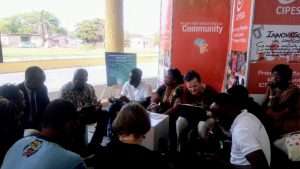By Hildah Nyakwaka-iHub |
Technology has woven itself into every aspect of our lives over the past few weeks. People have been required to work online, attend school lessons online, shop for essential goods and most importantly, build social communities online. Building communities requires people to have at the most basic, access to relevant ICT. We have seen a surge in the implementation of policies to cushion the general public from some costs, such as reduced M-Pesa, introduction of data bandwidth subsidies for university students and providing a wider internet coverage among others.






